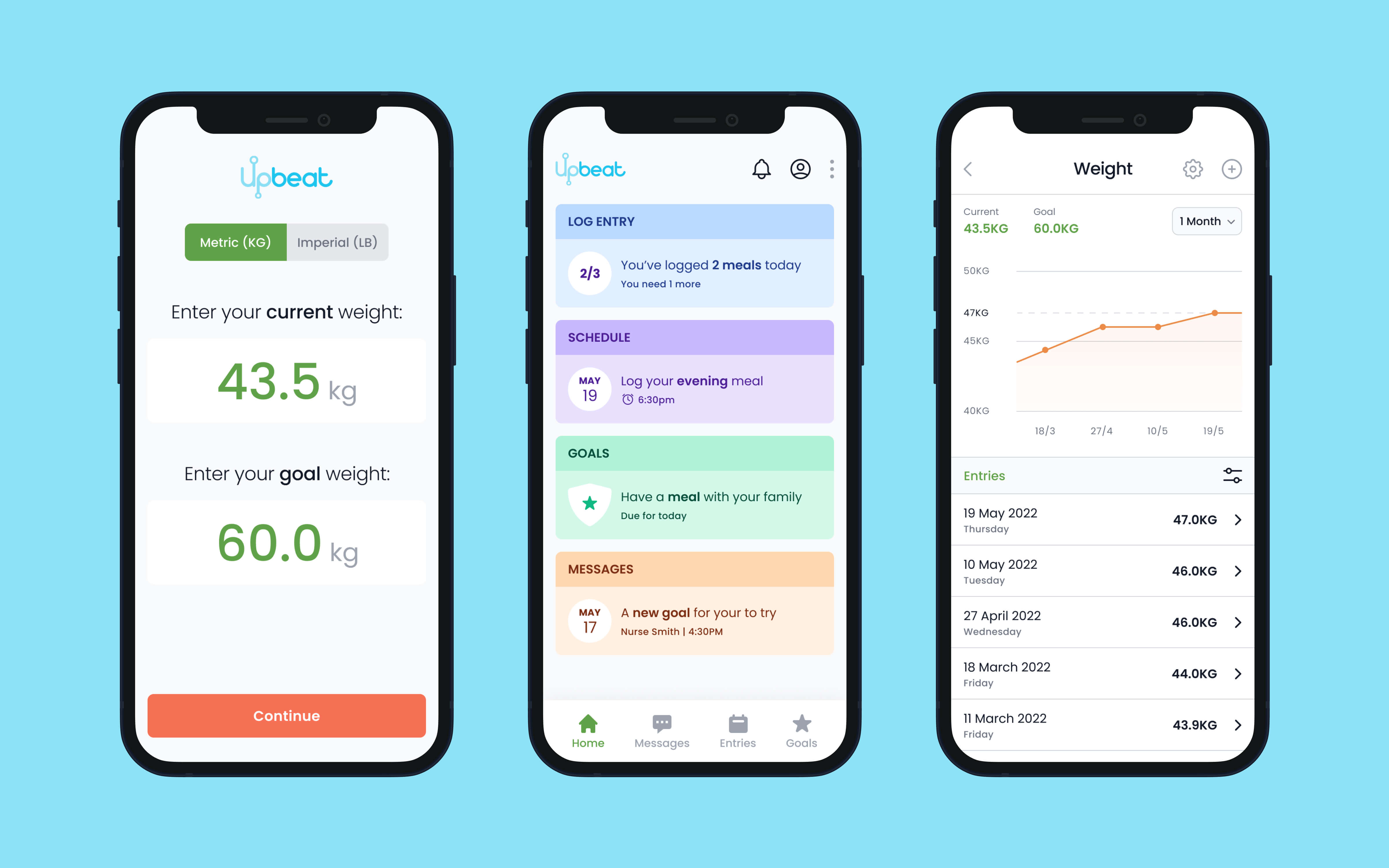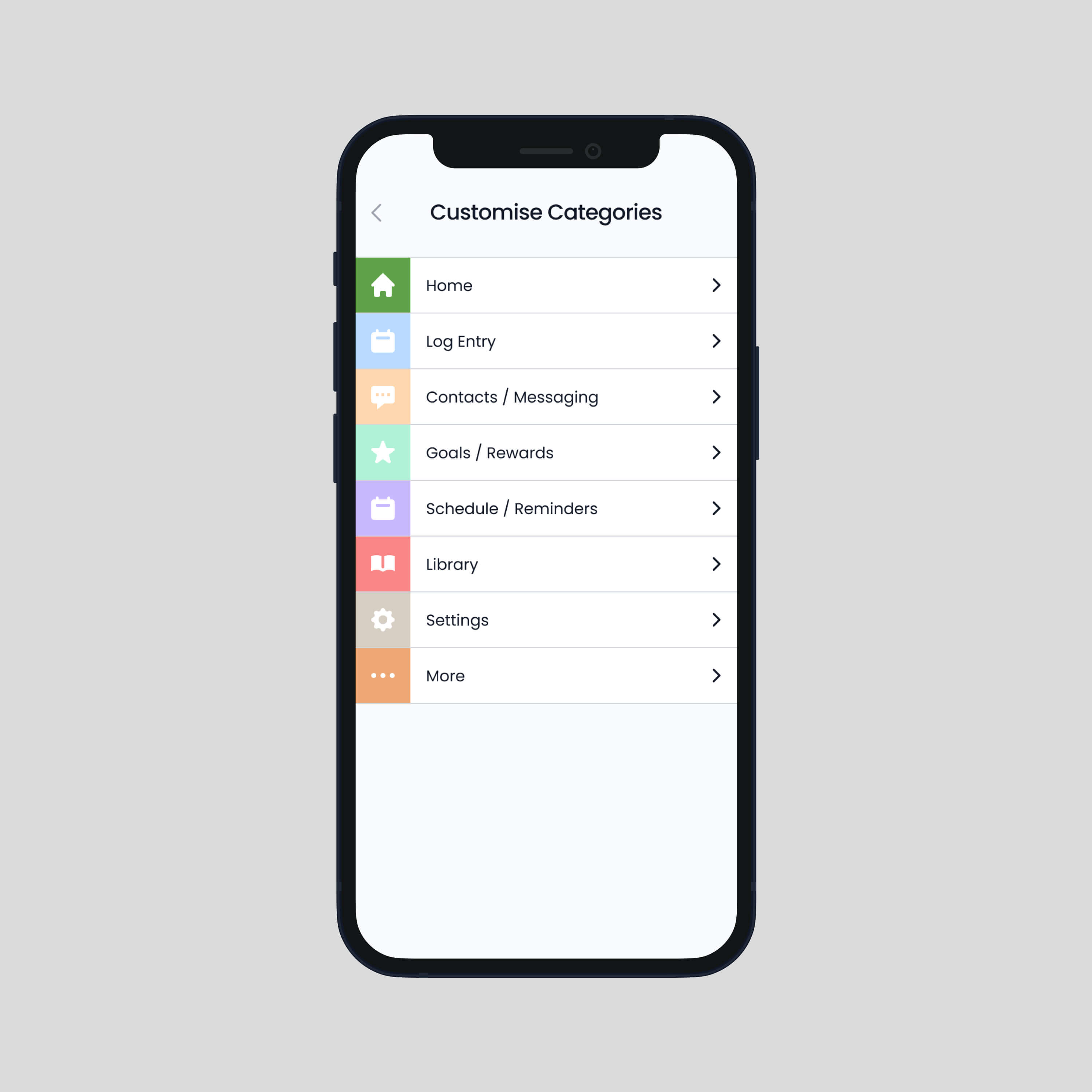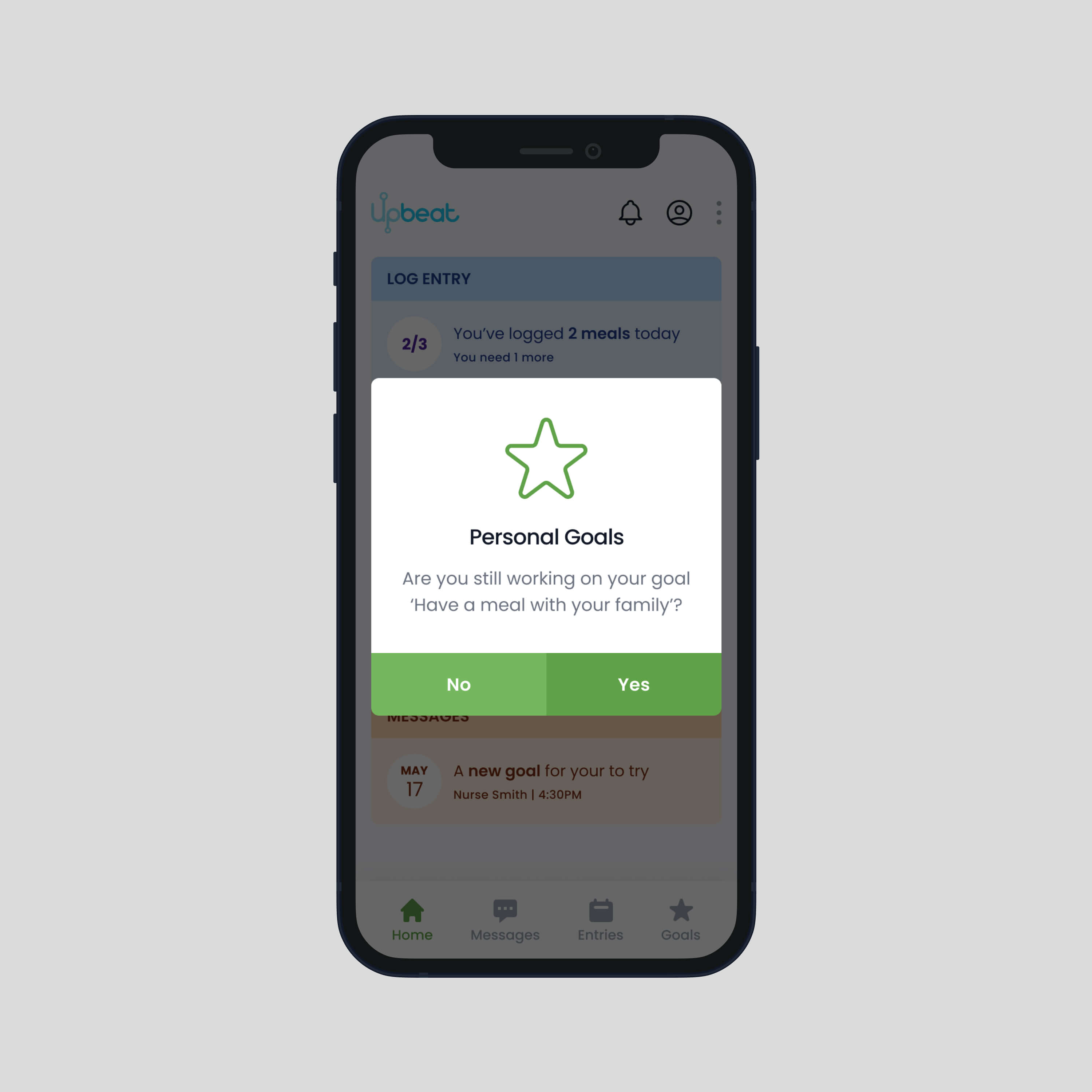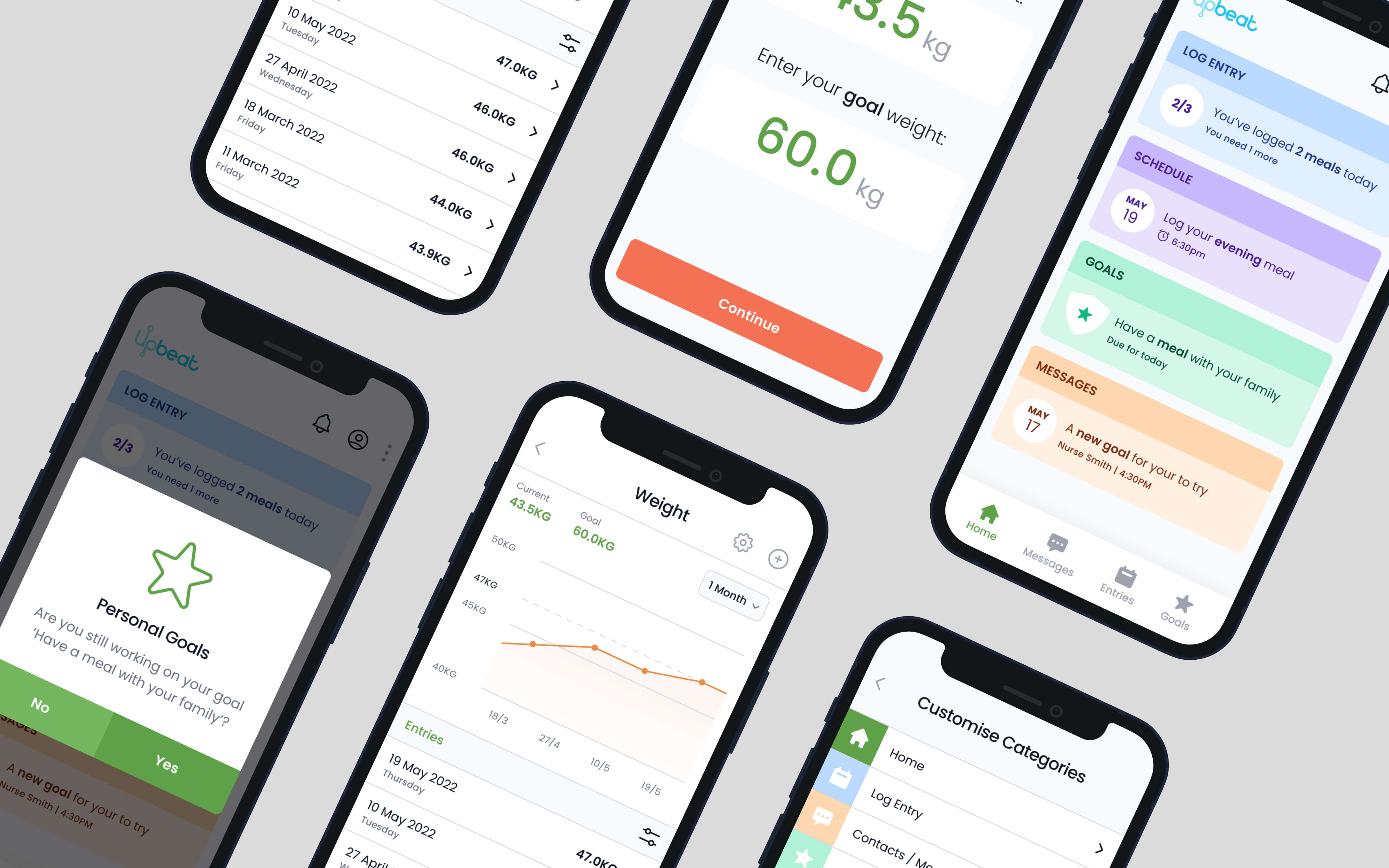

Improving the way we deliver services for mental health care
To increase the efficiency in how we provide care services for mental health, we built UpBeat, a self-management mobile app designed for patients with eating disorders.

Understanding the aim of the product
UpBeat is designed to create efficiencies in the delivery of mental health care services, by reducing the need for appointments and increasing the number of touchpoints between clinicians and patients.
The app allows patients to log their food, mood, and symptoms so that their data can be tracked over-time. Patients can also message their clinician, set goals, and access relevant services.
This then increases the autonomy of the care and means clinicians can focus on a larger number of patients at a time; something especially important for NHS bodies in times of squeezed budgets, increased focus on mental health, and the societal cost of long-term conditions.
Improving the clinician-patient connection
Alongside building the patient-facing app in which users could log their information, we also needed to create a seamless experience for the clinicians to receive that data and keep track of their patients progress.
To connect that experience, we built a custom web portal to provide clinicians with visualised data, as well as let them message their patients and schedule appointments. The data is sent from the app to the web portal in real-time, meaning clinicians are always kept in the loop and can manage the progress of more patients on their own.


Partnering with the right organisations
We were commissioned to build UpBeat by the Leeds and York Partnership NHS Foundation Trust (LYPFT), and also worked with the LYPFT and a group of young people to co-design some of the features and aspects of the initial version.
This meant that we were able to get a much clearer idea of how the product would be used, and could test and iterate on the design with the end users to ensure that we met the needs of the patients and improved their care.
More than just ticking boxes
As well as making the design colourful, engaging, and suitable for the target audience, we also worked closely with the LYPFT team to ensure that the app and portal were compatible with NHS Information Governance guidelines and supported established NICE care pathways.
This involved the bespoke build of an SQL server-side database, and development of a custom API so that the patients data was secure and met the required regulations.

Delivering a quality product at rapid speeds
The mobile app and web portal were developed under our agile project management methodology. The iOS and Android apps were built natively in Swift and Java respectively, and the web portal was built using Angular JS.
Before launch, we rigorously tested both apps and the portal under our 4-step testing process, discovering and squashing bugs through Informal, Formal, User Acceptance, and Smoke testing.
Continued support
Since launching earlier in 2016, we have consistently supported the app as it rolls out to NHS service providers. This has involved monitoring crash reports, fixing bugs, and optimising the app for new Operating Systems.
Like this? You'll love some of our other projects too
Improving the way we deliver services for mental health care
To increase the efficiency in how we provide care services for mental health, we built UpBeat, a self-management mobile app designed for patients with eating disorders.
Understanding the aim of the product
UpBeat is designed to create efficiencies in the delivery of mental health care services, by reducing the need for appointments and increasing the number of touchpoints between clinicians and patients.
The app allows patients to log their food, mood, and symptoms so that their data can be tracked over-time. Patients can also message their clinician, set goals, and access relevant services.
This then increases the autonomy of the care and means clinicians can focus on a larger number of patients at a time; something especially important for NHS bodies in times of squeezed budgets, increased focus on mental health, and the societal cost of long-term conditions.
Improving the clinician-patient connection
Alongside building the patient-facing app in which users could log their information, we also needed to create a seamless experience for the clinicians to receive that data and keep track of their patients progress.
To connect that experience, we built a custom web portal to provide clinicians with visualised data, as well as let them message their patients and schedule appointments. The data is sent from the app to the web portal in real-time, meaning clinicians are always kept in the loop and can manage the progress of more patients on their own.



Partnering with the right organisations
We were commissioned to build UpBeat by the Leeds and York Partnership NHS Foundation Trust (LYPFT), and also worked with the LYPFT and a group of young people to co-design some of the features and aspects of the initial version.
This meant that we were able to get a much clearer idea of how the product would be used, and could test and iterate on the design with the end users to ensure that we met the needs of the patients and improved their care.
More than just ticking boxes
As well as making the design colourful, engaging, and suitable for the target audience, we also worked closely with the LYPFT team to ensure that the app and portal were compatible with NHS Information Governance guidelines and supported established NICE care pathways.
This involved the bespoke build of an SQL server-side database, and development of a custom API so that the patients data was secure and met the required regulations.


Delivering a quality product at rapid speeds
The mobile app and web portal were developed under our agile project management methodology. The iOS and Android apps were built natively in Swift and Java respectively, and the web portal was built using Angular JS.
Before launch, we rigorously tested both apps and the portal under our 4-step testing process, discovering and squashing bugs through Informal, Formal, User Acceptance, and Smoke testing.
Continued support
Since launching earlier in 2016, we have consistently supported the app as it rolls out to NHS service providers. This has involved monitoring crash reports, fixing bugs, and optimising the app for new Operating Systems.






